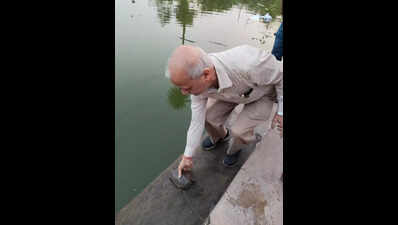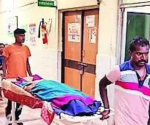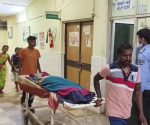Kandhamal District Taps Gambusia Fish to Combat Mosquito-Borne Diseases | Bhubaneswar News


Berhampur: What is the best way to protect yourself from mosquito bites? It’s not a net or a repellant — it’s a fish. In an innovative and eco-friendly approach to combat the growing mosquito menace, the Kandhamal district administration has introduced ‘mosquito-killer’ Gambusia fish to curb the spread of vector-borne diseases such as malaria.
The fish species, also known as ‘mosquito fish’ feed on the insect’s larvae. The fish have been released in stagnant water in drains, said Santosh Kumar Padhy, chief district medical officer (CDMO) Kandhamal.
“Around 1,200 fish were already released in four places identified as breeding grounds for mosquitoes,” he said. The biological intervention will continue for the next few days and is planned to be introduced in the malaria-prone rural areas in the district, said the CDMO.
These larvivorous fish, known for their ability to consume mosquito larvae, have been strategically deployed in Phulbani municipality areas and will soon extend to rural malaria-prone regions. “A single full-grown fish eats around 100 to 200 mosquito larvae per day, which in turn helps to control the spread of the mosquito menace and vector-borne diseases such as malaria,” said Padhy.
The initiative also involved reviving a defunct Gambusia hatchery at the CDMO office. Furthermore, the administration is setting up a hatchery for Guppy fish, another larva-eating species, by procuring them from Ganjam district. Plans are underway to establish similar hatcheries at sub-divisional and community health centres across the district.
Padhy highlighted the success of this method during his tenure in Ganjam. “I introduced this method in Berhampur Municipal Corporation (BeMC) two years ago to control the mosquito menace and prevent vector-borne diseases. The biological intervention method gained acceptance among locals as it was a natural way to kill the larvae,” he added.
Residents of Phulbani have also praised the administration’s efforts, calling it a sustainable solution to the malaria crisis, the CDMO claimed.















